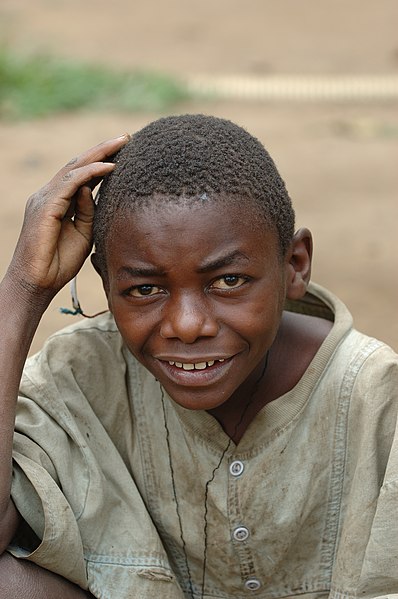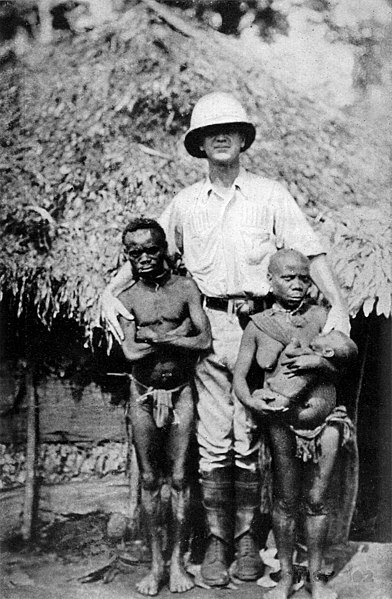The Great Lakes Twa, also known as Batwa, Abatwa or Ge-Sera, are a Bantu speaking group native to the African Great Lakes region on the border of Central and East Africa. As an indigenous pygmy people, the Twa are generally assumed to be the oldest surviving population of the Great Lakes region. Current populations of Great Lakes Twa people live in the states of Rwanda, Burundi, Uganda and the eastern portion of the Democratic Republic of Congo. In 2000 they numbered approximately 80,000 people, making them a significant minority group in these countries. The largest population of Twa is located in Burundi estimated in 2008 at 78,071 people.
Mutwa with traditional bow and arrow
Batwa women with traditional pottery
A traditional dance of the Batwa
Mutwa boy in the village Shasha in North Kivu during 2007 conflicts
In anthropology, pygmy peoples are ethnic groups whose average height is unusually short. The term pygmyism is used to describe the phenotype of endemic short stature for populations in which adult men are on average less than 150 cm tall.
Aka Pygmies on the Congo Basin in 2014
A family from a Ba Aka pygmy village
African pygmies and a European visitor, c. 1921
Baka pygmy dancers in the East Region of Cameroon








